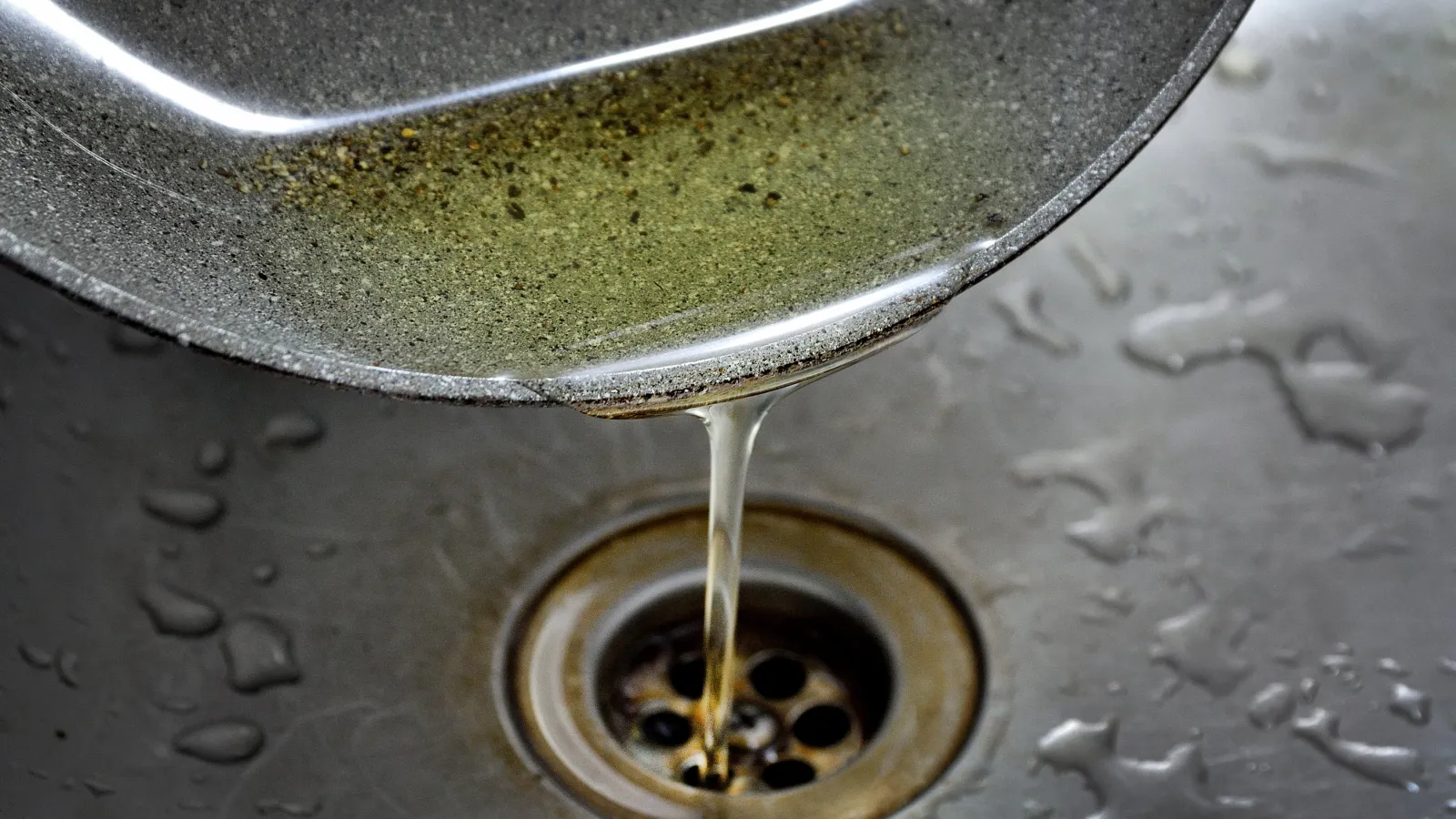What causes drain clogs?
Oh, sure. We’ve all experienced a backed up toilet and nearly everyone has pulled a clump of hair out of the shower drain at some time or another.
But those are the small clogs. While you’ll sometimes need a plumber to clear them, you can often deal with them on your own.
What we’re concerned with there are the big clogs. You know, the ones that are deep down the line, difficult to access, and causing multiple clogs or slow draining plumbing fixtures around your home.
Here are the top causes of serious drain clogs with some tips on preventing them in the future.
Top cause #1: Tree roots in the sewer line
Here in the Atlanta area, we’re fortunate to be surrounded by large, beautiful shade trees. There are very few downsides to having big trees all over the place… except when it comes to old sewer lines.
If you live in an older home that’s surrounded by large trees, you may already be aware of this common problem.
In this region, it’s common–very common–for tree roots to bust through sewer lines and grow into the pipe.
This can happen when a small crack forms in an old, deteriorating sewer pipe and the tree roots move to where the water is. It can also happen when large tree roots grow and expand around the sewer line and cause the pipe to crack. From there, the roots can grow into the pipe.
Regardless, having tree roots in your sewer line can cause a major blockage. The solution is to excavate the damaged section of pipe and replace it with new piping. Old cast iron or concrete sewer lines are more prone to tree root intrusion than new PVC ones. Your replacement piping will be made of PVC.
How to prevent tree root intrusion in your sewer line
Move! Just kidding.
While there’s no way to 100% prevent tree roots from busting into your sewer line, annual preventative maintenance for your plumbing system is the best option. With our plumbing maintenance plan, we perform an annual sewer camera inspection to check your sewer line for soon-to-be blockages.
Top cause #2: Feminine hygiene products
Here’s another thing we often find blocking sewer lines: clumps of feminine hygiene products.
There are really only two things anybody should flush down the toilet: human waste and toilet paper. With almost no exceptions, anything else can clog the sewer line.
A lot of folks seem to think feminine hygiene products are toilet-safe. They just… aren’t. They’ll clog the sewer line, cause you a lot of inconvenience, and cost you money. Just don’t do it.
How to stop feminine hygiene products from clogging your sewer line
Throw these items in the trash. Don’t flush them. It’s really the only option.
Top cause #3: Disposable baby wipes (and other types of wipes)
If you wipe your (or a baby’s) bottom with it, then it’s essentially toilet paper, right? That means you can flush it, right?
No and no.
Perhaps more than ever before, plumbers are finding large clumps of wet wipes blocking sewer lines. Given the increasing popularity of wet wipes for grownups, maybe this shouldn’t be a surprise. After all, some of those products are even labeled “flushable.” It says on the packaging, so it must be ok!
Wrong. They’re not flushable. At all. Ever.
We don’t know why the wet wipe manufacturers feel empowered to deem these products flushable, but we always advise customers not to flush them. We’ve just seen too many cases of these things forming giant clumps in sewer lines and blocking the flow of wastewater.
How to prevent wet wipes from causing clogs
Throw them in the trash. Don’t flush them. You can also just use toilet paper, which is flushable.
Top cause #4: Cooking grease
All that oil from your fry pot is finally cool enough to handle. It’s time to pour it down the sink, right?
Nope! Not unless you like having your sewer line blocked.
This is another one we see a lot: cooking grease that clings to the sides of sewer lines. What happens is that the oil cools and hardens inside the sewer line. It doesn’t all just flow into the main city sewer line.
As it hardens, it starts to impede the flow of wastewater. Other stuff, like food remnants (see below), sticks to it and forms a total blockage of the line. In some cases, there’s enough grease clinging to the side of the pipe to completely clog the line without the help of any other materials.
Most of the time, we can hydro jet the line and bust up all of the grease. Of course, this is a huge inconvenience and expense for the homeowner. It’s better to prevent it in the first place.
How to stop cooking grease from causing a drain clog
Instead of pouring oil down the sink, pour it into a disposable container and throw it away.
Honorable mention: Large food scraps and remnants
This one isn’t as common as the issues discussed above, but it definitely can lead to clogs in your drains or sewer line.
Large food remnants simply aren’t suited for your drain. They can stick to the sides and cause blockages. The biggest offenders include:
- Potato skins
- Fruit peels
- Eggshells
- Coffee grounds
Yes, coffee grounds aren’t “large,” exactly, but they can form big clumps when they collect in one spot.
Small, soft bits of food are fine for the garbage disposal, but avoid sending anything else down there. A good rule to follow is to rake excess food off of plates into the garbage. Anything that’s still left on the plates afterward is ok for the garbage disposal.
Older pipe materials are more prone to clogs
Let’s face it. Older homes are more prone to drain clogs.
That’s because older properties tend to have concrete or cast iron pipes. These pipe materials, when compared to PVC, are less robust and more likely to deteriorate with age. Both are more susceptible to tree root intrusion.
And cast iron, in particular, is more prone to clogging up.
That’s because the inside of a cast iron pipe typically isn’t smooth. It’s actually kind of bumpy. As such, things tend to snag on the rough parts and accumulate there.
So if you’ve got a cast iron sewer pipe and you start flushing baby wipes and feminine hygiene products down the toilet, it’s only a matter of time before they clump up and cause a blockage.
While newer homes can also have sewer line problems, PVC is somewhat less prone to these sorts of clogs. We’re not saying they don’t happen–they definitely do!–but cast iron pipes are just really really easy to clog compared to newer materials.
Think you’ve got a drain clog? Want to keep your sewer line free and clear?
PV’s got you! If you live in Metro Atlanta and are concerned about a troublesome drain clog, our team can help.
We perform free sewer camera inspections for any potential sewer line clog. That way, we can identify the exact problem and point you to the best solution.
Our plumbing maintenance plans also include annual sewer inspections, so you can rest assured that your drains and sewer line are not on the verge of clogging any time soon.
To find out more or schedule service call us at (404) 798-9672 today! You can also schedule service online.





